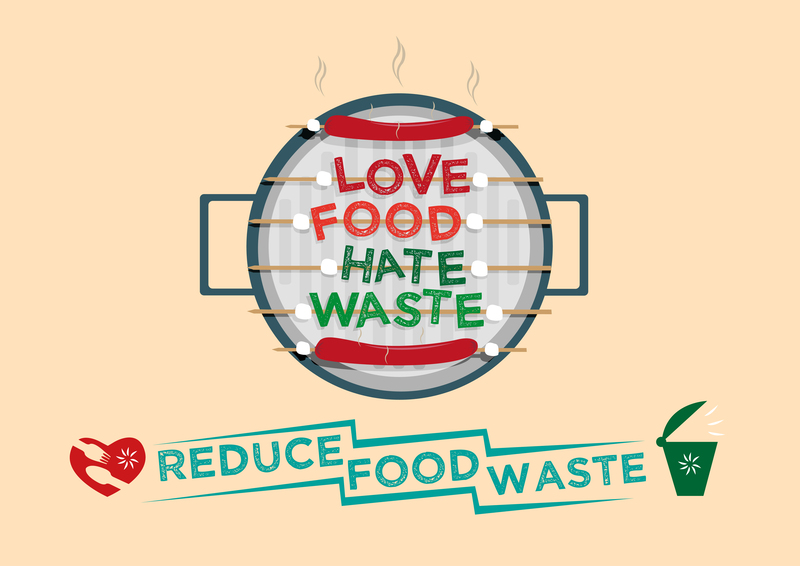Innovative Ideas for Preventing Waste in Every Room
Preventing waste is more than a trend--it's a necessity for a sustainable future. By making mindful choices, we can reduce the amount of waste produced in every area of our homes. This in-depth article explores innovative strategies for minimizing waste in each room, offering practical, creative, and effective solutions for a more eco-friendly lifestyle.

Why Is Waste Prevention Important?
Before diving into room-by-room approaches, it's crucial to understand why reducing waste truly matters. Excess waste overwhelms landfills, pollutes ecosystems, and squanders valuable resources. Innovative waste prevention strategies help:
- Conserve energy and raw materials
- Lower pollution
- Fight climate change
- Save money by encouraging mindful consumption
*By adopting creative solutions, every household can become part of the global movement to prevent waste and protect the planet.*
Kitchen - The Heart of Waste Prevention
The kitchen is often the main source of household waste, but it's also where the biggest difference can be made with a few innovative waste reduction ideas:
Smart Shopping & Meal Planning
- Adopt a "Shop Your Pantry" Approach: Before heading to the store, check what you already have to avoid unnecessary purchases.
- Embrace meal planning: Plan your weekly meals and make detailed shopping lists to prevent overbuying fresh produce and perishables.
Creative Food Storage
- Use airtight containers, glass jars, and beeswax wraps to prolong food freshness without plastic waste.
- Label leftovers with dates to ensure they're eaten in time.
Composting and Upcycling
- Start a kitchen compost bin for food scraps and coffee grounds, reducing landfill contributions.
- Try recipe upcycling: Create "scrappy" soups, broths, or stir-fries using vegetable peels, wilted greens, or even stale bread.
Reduce Single-Use Items
- Switch from paper towels to reusable cloths.
- Use bulk bins for grains, spices, and snacks, storing them in reusable containers.
Living Room - Sustainable Socializing and Relaxation
The living room, where families gather, often sees a buildup of decor debris, electronics, and packaging materials. Preventing waste here is about thoughtful consumption and maximizing use of existing items.
Mindful Decor Choices
- Decorate with preloved or upcycled pieces to reduce demand for new products.
- Opt for timeless designs and quality materials to minimize the urge for frequent updates.
- Try plant decor: Live plants refresh the room and air, and are compostable at end-of-life.
Electronics and Entertainment
- Consolidate remotes with universal apps to cut down on disposable batteries.
- Repair electronics when possible and recycle old devices through certified e-waste programs.
- Consider digital subscriptions instead of physical DVDs, books, and magazines.
Waste-Free Entertaining
- Serve drinks in reusable glassware and provide cloth napkins.
- For parties, use real plates and cutlery or compostable options, avoiding single-use plastics.
Bathroom - Personal Care with Less Waste
Although bathrooms seem low-waste, they can quickly fill with single-use plastics and excess chemicals. Utilize these bathroom waste prevention ideas for a cleaner, greener routine:
Plastic-Free Personal Care
- Swap bottled soap and shampoo for solid bars and refillable options.
- Choose bamboo toothbrushes and compostable floss picks.
- Make DIY face masks and scrubs from kitchen ingredients to curb packaged beauty products.
Eco-Friendly Cleaning
- Use reusable cleaning cloths and choose concentrated cleaning solutions in recyclable packaging.
- Try vinegar, baking soda, and essential oils for homemade cleaning recipes.
Saving Water & Energy
- Fit low-flow showerheads and faucets to reduce water waste.
- Turn off the tap while brushing teeth or shaving--simple steps lead to big savings.
Bedroom - Conscious Consumption & Organization
Bedrooms can become clutter zones, especially with fast fashion and impulse purchases. Preventing waste in the bedroom involves making intentional choices and rethinking habits:
Wardrobe Wisdom
- Opt for a capsule wardrobe--focus on quality, timeless pieces that mix and match for versatility.
- Swap or donate clothes before buying new ones; host clothing exchanges with friends for "new" looks.
- Repair torn garments and repurpose old fabrics into rags, quilts, or crafts.
Minimalist Storage Solutions
- Use modular storage to keep items organized and visible, reducing overbuying.
- Digitize photos and paperwork to cut down on physical clutter.
Eco-Conscious Bedding and Decor
- Buy bedding made from organic, biodegradable materials.
- Repurpose or upcycle old furniture instead of disposing.
Laundry Room - Smarter Cleaning, Less Impact
The laundry room revolves around cleaning, but it can also be a source of microplastic and detergent waste. Here's how to rethink laundry waste:
Efficient Practices
- Wash full loads and use cold water to save energy and reduce wear on clothes.
- Air-dry whenever possible instead of using the dryer.
Eco-Friendly Detergents
- Use detergent strips or powders in recyclable packaging.
- Try natural stain removers like baking soda and lemon juice before resorting to chemicals.
- Install a microfiber filter or use laundry balls to capture microplastics from synthetic fabrics.
Clothing Care to Prevent Waste
- Spot-clean minor stains to reduce unnecessary laundry loads.
- Learn basic mending and button-replacement to extend garment life.
Kids' Room & Play Area - Waste-Reducing Playtime
Toys, art supplies, and fast-changing sizes mean kids' rooms can be hotspots for excess waste. Innovative ideas here involve creativity and upcycling:
Sustainable Toys
- Prioritize high-quality, non-plastic toys that last and can be passed down.
- Organize toy swaps with friends or in your community.
- Choose toys with minimal packaging or make your own from household items.
Creative Upcycling and Organization
- Transform old boxes, containers, and fabrics into imaginative play items or craft supplies.
- Store toys in bins made from repurposed materials to teach environmental values.
Responsible Art and Crafting
- Use recycled paper, bottle caps, and scrap fabrics for crafts.
- Recycle old markers, crayons, and paint containers through special programs.
Garage, Basement, or Utility Room - Tackling Hidden Waste
These utility spaces often become catch-alls for hazardous materials, forgotten gadgets, or seasonal clutter. Tackling waste here requires careful management:
Hazardous Waste Management
- Properly dispose of paints, oils, and chemicals at local hazardous waste facilities.
- Switch to non-toxic alternatives whenever possible.
Reuse and Repurpose
- Donate unused tools and equipment instead of letting them gather dust.
- Repurpose storage bins, shelving, or old furniture from other parts of the house.
Seasonal & Outdoor Gear
- Label and organize gear for different seasons to prevent buying duplicates.
- Repair or clean lightly used gear to extend its life.
Whole-House Waste Prevention Techniques
In addition to room-specific suggestions, apply these housewide waste reduction ideas for best results:
- Set up an easy recycling and compost station on every floor.
- Host regular decluttering sessions and donate or upcycle gently used items.
- Educate your family and housemates about what can be recycled or composted locally.
- Subscribe to digital bills and statements to eliminate paper waste.
- Buy in bulk to minimize packaging--bring your own containers if allowed.
- Maintain a "one-in, one-out" policy for clothes, gadgets, or toys to keep consumption mindful.

Emerging Innovations for Waste Prevention
Smart Home Technologies
- Intelligent refrigerators track expiry dates to prevent food spoilage waste.
- IoT-based water and energy monitors help identify and eliminate hidden waste.
Community-Based Solutions
- Participate in local "zero waste" initiatives, repair cafes, or tool libraries.
- Join neighborhood composting or material exchange programs.
Conclusion: Every Room Matters in the Fight Against Waste
Preventing waste is about more than just recycling--it's a lifestyle built on thoughtful choices and a willingness to explore innovative, creative approaches in every room. By adopting inventive waste prevention strategies, you'll:
- Save money and reduce clutter
- Protect the planet for future generations
- Inspire others in your community to follow suit
Every small step counts--begin with one room, and watch the impact multiply!
*By integrating these waste prevention techniques into daily routines, every individual can help build a cleaner, greener world--one room at a time.*